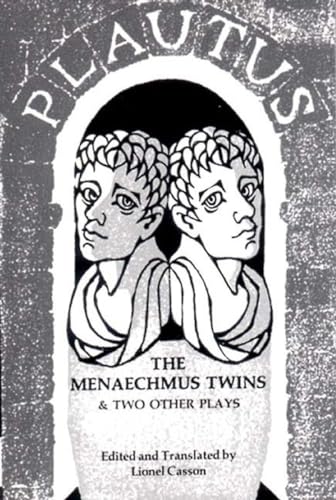Plautus Plays
Brilliantly adapting Greek New Comedy for Roman audiences, the sublime comedies of Plautus (c. 254-184 BC) are the earliest surviving complete works of Latin literature. The four plays collected here reveal a playwright in his prime, exploring classic themes and developing standard characters that were to influence the comedies of Shakespeare, Molière and many others. In The Ghost, a dissolute son who has squandered his father's money is thrown into disarray when he returns from abroad, a theme that is explored further in the comedy of errors A Three-Dollar Day. In The Rope—regarded by many as the best of Plautus' plays—the shipwreck of a pimp and his slaves leads to the touching reunion of a father and his daughter, while Amphitryo, Plautus's only excursion into divine mythology, offers a cheerful account of how Jupiter became father to Hercules.
For more than seventy years, Penguin has been the leading publisher of classic literature in the English-speaking world. Gujarat samachar epaper in gujarati. With more than 1,700 titles, Penguin Classics represents a global bookshelf of the best works throughout history and across genres and disciplines. Readers trust the series to provide authoritative texts enhanced by introductions and notes by distinguished scholars and contemporary authors, as well as up-to-date translations by award-winning translators.


'synopsis' may belong to another edition of this title.

Titus Maccius Plautus (c. 254–184 BC), commonly known as Plautus, was a Roman playwright of the Old Latin period. Canon photo editing software. His comedies are among the earliest surviving intact works in Latin literature.
Twilight movie series download. Since its inception, there have been over 100 million book sales alone, as well as five different movies which are based on the original novels.
Plautus Plays Summaries
Titus Maccius Plautus (c. 254–184 BC), commonly known as 'Plautus', was a Roman playwright of the Old Latin period. His comedies are the earliest surviving intact works in Latin literature. He wrote Palliata comoedia, the genre devised by the innovator of Latin literature, Livius Andronicus. The word Plautine refers to both Plautus's own works and works similar to or influenced by his.
Not much is known about Titus Maccius Plautus' early life. It is believed that he was born in Sarsina, a small town in Umbria in central Italy, in around 254 BC. According to Morris Marples, Plautus worked as a stage-carpenter or scene-shifter in his early years. It is from this work, perhaps, that his love of the theater originated. His acting talent was eventually discovered; and he adopted the names 'Maccius' (a clownish stock-character in popular farces) and 'Plautus' (a term meaning either 'flat-footed' or 'flat-eared,' like the ears of a hound). Tradition holds that he made enough money to go into the nautical business, but that the venture collapsed. He is then said to have worked as a manual laborer and to have studied Greek drama—particularly the New Comedy of Menander—in his leisure. His studies allowed him to produce his plays, which were released between c. 205 and 184 BC. Plautus attained such a popularity that his name alone became a hallmark of theatrical success.
Plautus's comedies are mostly adapted from Greek models for a Roman audience, and are often based directly on the works of the Greek playwrights. He reworked the Greek texts to give them a flavour that would appeal to the local Roman audiences. They are the earliest surviving intact works in Latin literature.